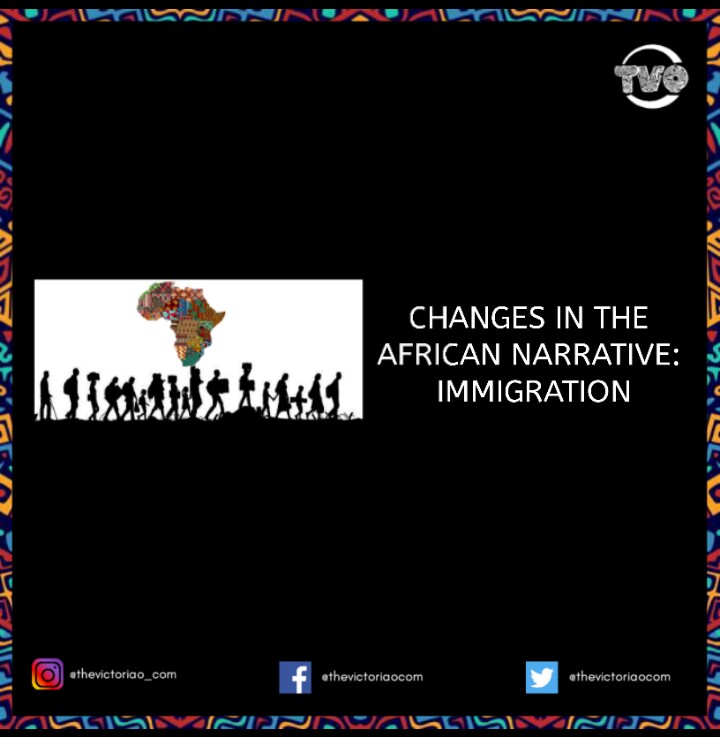by Peace Osemwengie

African literature may be divided into three phases: pre-colonial, colonial, post-colonial. All of these phases have influenced how African literature is seen, read, and understood. These phases have also affected the various themes that are constituent to African literature. Some of these themes include immigration, government, gender equality, feminism, poverty, etc.
Immigration may have arisen as a theme in African literature because of the experiences of African authors who had to leave their native homes and face what it means to be black in a white world. Immigration in African literature may have become a theme as a result of the disconnect that second generation Africans in diaspora feel when they visit the motherland. It may also have risen as a result of the absence of books that accurately explain the African experience on the global scene.
This theme, immigration, may be called a sister to negritude, may also be known as migritude, but some regard it as an opposition to Pan- Africanism. In the reality of it, it is not. Afrodiasporic literature proves this. During the later years of colonial literature, Soyinka, Achebe, and Ngugi wrote about how the white man’s forceful introduction into African regions dispossessed the people of their traditions, their culture, and essentially, their life. Their writings attempted to tell the story of Africa from the African perspective, and they did so, successfully. Yes, they were educated by the white man, but their art reflected the true nature of themselves, Africans.
Read also: gender and sexuality in African literature
Today, afrodiasporic literature, or as we want to call it, the immigrant theme in African literature attempts to explain the struggles, the disconnect, the elusiveness of balance, that Africans experience in their new global home. There are a great many afrodisaporic authors today, who have, in their various ways, celebrated their Africanness in their writings. Some of them include Alain Mabanckou, Fatou Diome, Chigozie Obioma, Chimamanda Adichie, NoViolet Bulawayo, among others. It should also be mentioned some of these authors have a love-hate relationship with Africa.
Some have said afropolitanism is perhaps too simple in its approach to the acceptance of Africans globally. While this is subject to debate, the writings of authors like Okey Ndibe, Chika Unigwe, NoViolet Bulawayo, and Chimamanda Adichie show that immigration is not as glamorous as it seems. There are questions that may not have answers, and then there’s the question of identity: who is the black person in the middle of this?
Chigozie Obioma injects the metaphysical into his narration of immigrant experiences in his book, An Orchestra of Minorities. Binyavanga Wainana’s How to write about Africa is sarcastic in its delivery of the African narrative from the non–African perspective. In Homegoing, Yaa Gyasi tells how balance is often skewered and how that balance must be achieved. Taiye Selasie in Ghana Must Go shows how the heart longs for home, even when home is inaccessible, and how this may cause rifts in the family system. Adichie in Americanah chronicles what it means to be a black immigrant and how cultures clash, and how often black questions are left unanswered.
Immigration in African literature is an important theme in the current phase of African literature that we are in. It is the training, and retraining of African passions and the telling of African stories to global ears.

